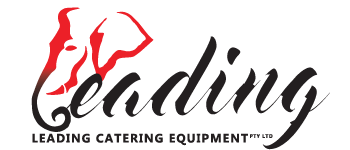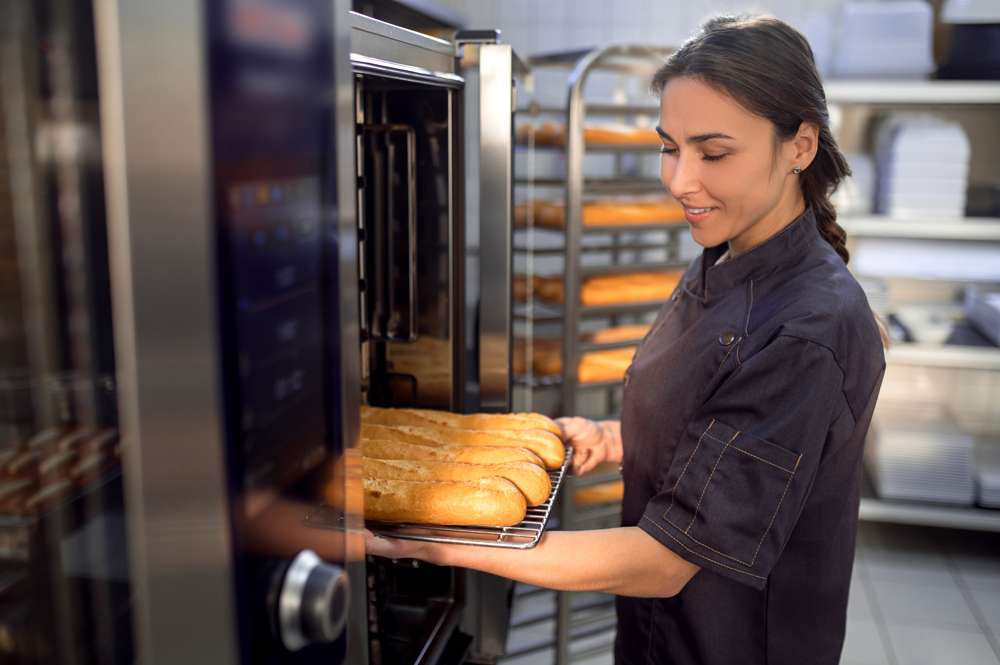Industrial pizza ovens are critical equipment in manufacturing, food processing, and countless other industries. They offer controlled and consistent heat, making them essential for various applications. However, as robust and efficient as they are, improper usage and maintenance can lead to costly issues, reduced efficiency, and even hazards. In this blog, we'll explore the common mistakes to avoid with your industrial oven, ensuring optimal performance, longevity, and safety.
1. Neglecting Regular Maintenance
One of the most recurring errors is ignoring regular upkeep schedules. Like any other machinery, these products need constant checks and upkeep to guarantee their efficient functioning. Failing to clean burners, inspect gas lines, or replace worn-out components can lead to uneven heat distribution, increased energy consumption, and possible equipment failure.
Design a maintenance checklist and conduct regular checks. Include cleaning, lubrication, calibration, and replacement of worn-out parts in your maintenance plan. Partner with professional service providers for thorough annual checks.
Heat allocation and temperature precision are crucial for the titular products. Over time, even the most advanced ovens may deviate from their original calibration settings. Operating an oven that hasn't been appropriately calibrated can result in inconsistent results, wasted resources, or damaged products.
Check the stove's temperature sensors and mechanisms regularly to guarantee precision. If you notice inconsistencies, promptly recalibrate the equipment using certified tools or services.
The way products are loaded into an industrial roaster significantly impacts its performance. Common mistakes include overloading, uneven distribution, or placing items too close to heat sources. These practices can obstruct airflow, cause uneven heating, and compromise the final output.
Follow the manufacturer's recommendations for loading capacity and arrangement. Check whether there is proper spacing between products in the industrial ovens to enable fair heat circulation.
4. Using the Wrong Oven Type
Industrial variants come in various types, including batch, conveyor, vacuum, and more. Choosing the incorrect type for your specific use can result in inefficiency and suboptimal outcomes.
Before buying an industrial stove, you should thoroughly consider your production needs. Consult manufacturers or experts to identify the product type that meets your needs.
5. Failing to Monitor Performance Metrics
Many businesses invest in high-performance industrial products but neglect to monitor their metrics. Without tracking factors like energy consumption, operating time, and heat uniformity, inefficiencies may go unnoticed, leading to higher costs and lower output quality.
Track performance using built-in or external monitoring systems. Set benchmarks and compare them periodically to detect efficiency declines.
6. Overlooking Safety Protocols
Safety should always be a top priority when operating commercial pizza ovens. Common safety errors include neglecting emergency shut-off systems, exposing flammable materials to heat, and failing to adequately train operators.
Perform frequent safety drills and training sessions for users. Ensure safety mechanisms such as emergency stops, alarms, and ventilation systems are functional.
7. Not Addressing Downtime
When used heavily, industrial equipment may experience downtime due to wear and tear. However, overlooking smaller issues during downtime or delaying repairs can escalate problems and put a spanner in your production plans.
Have a proactive downtime management plan. Address any issues immediately and stock essential spare parts to minimise the impact of downtime.
8. Poor Installation Practices
An improperly installed industrial offering can be a nightmare for production. Issues like uneven levelling, incorrect wiring, or insufficient ventilation during installation can result in long-term operational challenges.
Get the dual benefit of a cooktop with burners for warming pots and pans and an oven for baking, roasting, or grilling. Check out our range now.
Hire experienced professionals for stove installation. Ensure the setup meets all manufacturer guidelines and complies with safety standards.
Using outdated industrial pizza ovens for sale can hinder productivity, increase operating costs, and reduce output quality. Many businesses hesitate to upgrade due to upfront expenses, but the long-term advantages outweigh the starting costs.
Evaluate your appliance's performance regularly and consider upgrading to modern, energy-efficient models with advanced features like IoT integration and automated controls.
10. Ignoring Cleaning Protocols
Residue buildup in these products can lead to contamination, uneven heating, and fire hazards. Yet, many operators fail to adhere to proper cleaning protocols, leaving debris and residues unattended.
Establish a cleaning schedule tailored to your product and usage level. Use ideal cleaning mechanisms and tools to guarantee thorough yet secure cleaning.
11. Not Accounting for Climate Factors
Climate conditions such as dampness and temperature can impact the efficiency of industrial ovens. Neglecting these factors can lead to inconsistent results and energy waste.
Install your industrial oven in a controlled environment and regularly monitor ambient conditions. Use insulation and ventilation systems to mitigate external influences.
12. Lack of Operator Training
Untrained operators often struggle to use the products efficiently after they buy pizza ovens online, leading to common errors like incorrect settings or unsafe practices.
Invest in comprehensive training programs for all operators. Incorporate interactive sessions and certifications to guarantee competency.
13. Mismanagement of Energy Use
Industrial ovens can consume significant energy, mainly when operated inefficiently. Common mistakes include prolonged preheating, stove running at unnecessarily high temperatures, or optimising heat recovery systems.
Set appropriate temperatures and timers to optimise energy use. Explore modern offerings with energy-saving features like heat recovery systems.
14. Disregarding the Manufacturer's Guidelines
Many businesses neglect manufacturers' guidelines, which can lead to improper use, reduced efficiency, and safety risks.
Always refer to the user manual for operational instructions—contact manufacturers for clarification on any unclear aspects.
15. Using Low-Quality Spare Parts
Some manufacturers opt for low-quality spare components when substitutes are needed to cut expenses. This step often results in performance decline, increased maintenance needs, and shorter equipment lifespan.
Use high-quality, manufacturer-recommended spare parts to ensure durability and optimal performance.
16. Failure to Conduct Preventive Maintenance
Reactive maintenance—fixing issues after they arise—is a common but flawed approach. Ignoring preventative upkeep can result in costly repairs and unplanned downtime of your industrial oven.
Adopt a preventive maintenance strategy. Schedule regular checks and replace components before they fail.
17. Ignoring Exhaust and Ventilation Systems
A clogged or poorly maintained exhaust and ventilation system can lead to heat retention, inefficient airflow, and hazardous conditions.
Inspect and clean exhaust systems regularly. Ensure ventilation pathways are unobstructed and functional.
18. Improper Shutdown Procedures
Turning off industrial appliances abruptly or incorrectly can damage components and compromise safety.
Follow proper shutdown procedures outlined by the manufacturer—train operators to execute them meticulously.
19. Overlooking Automation Features
Many modern industrial ovens have advanced automation features, but some operators fail to exploit them, resulting in reduced efficiency and precision.
Familiarise yourself with your stove's automation capabilities and incorporate them into daily operations.
Avoiding these common mistakes is not just about preventing immediate problems; it's about investing in your commercial pizza oven's long-term health, efficiency, and safety. By prioritising proper operation, diligent maintenance, and a commitment to safety protocols, you can maximise your product's lifespan, ensure consistent product quality, minimise downtime, and create a safer working environment. Remember, your industrial oven is a valuable asset – treating it with the care and attention it deserves will pay dividends.






